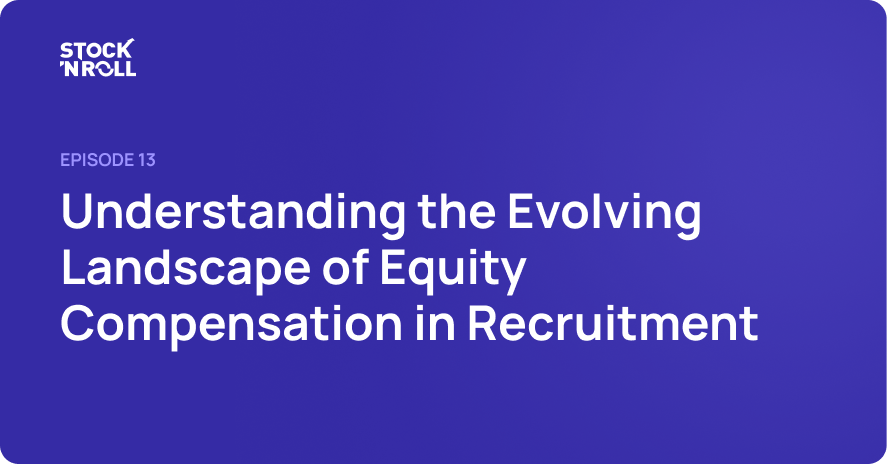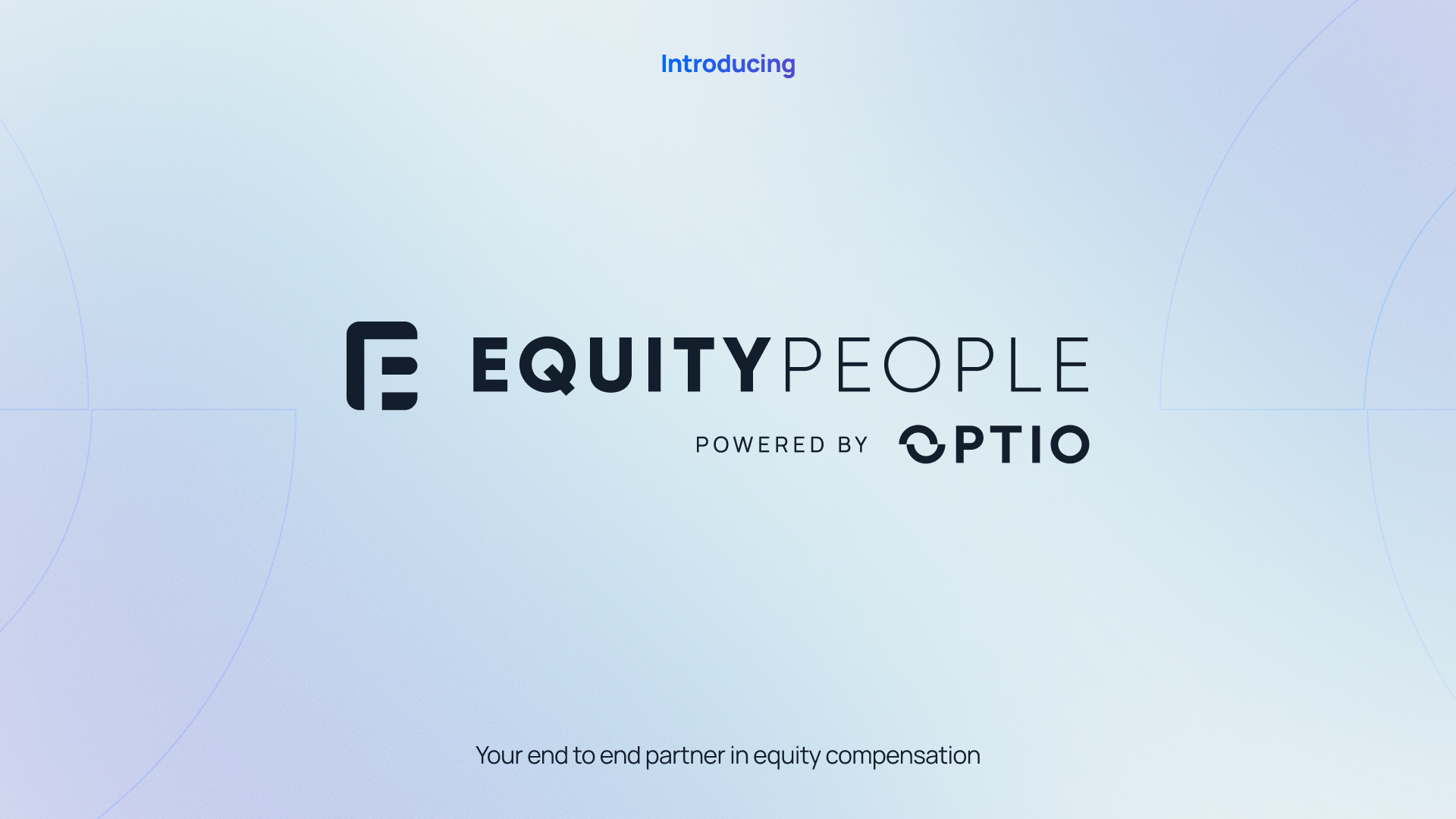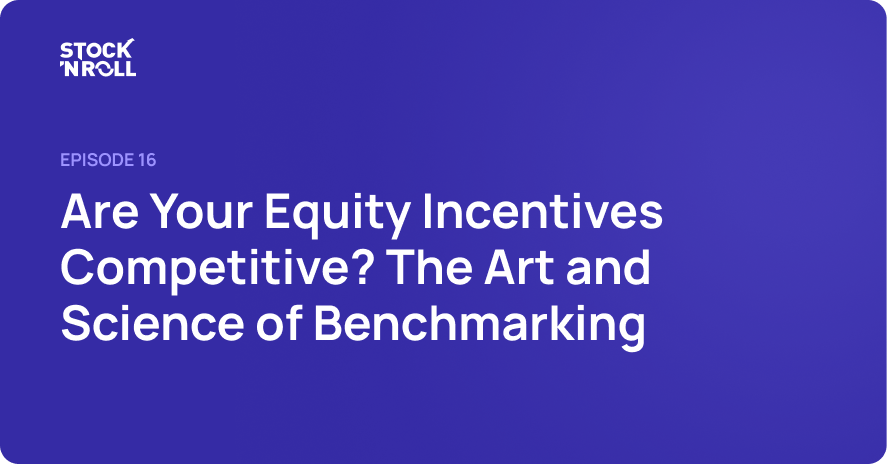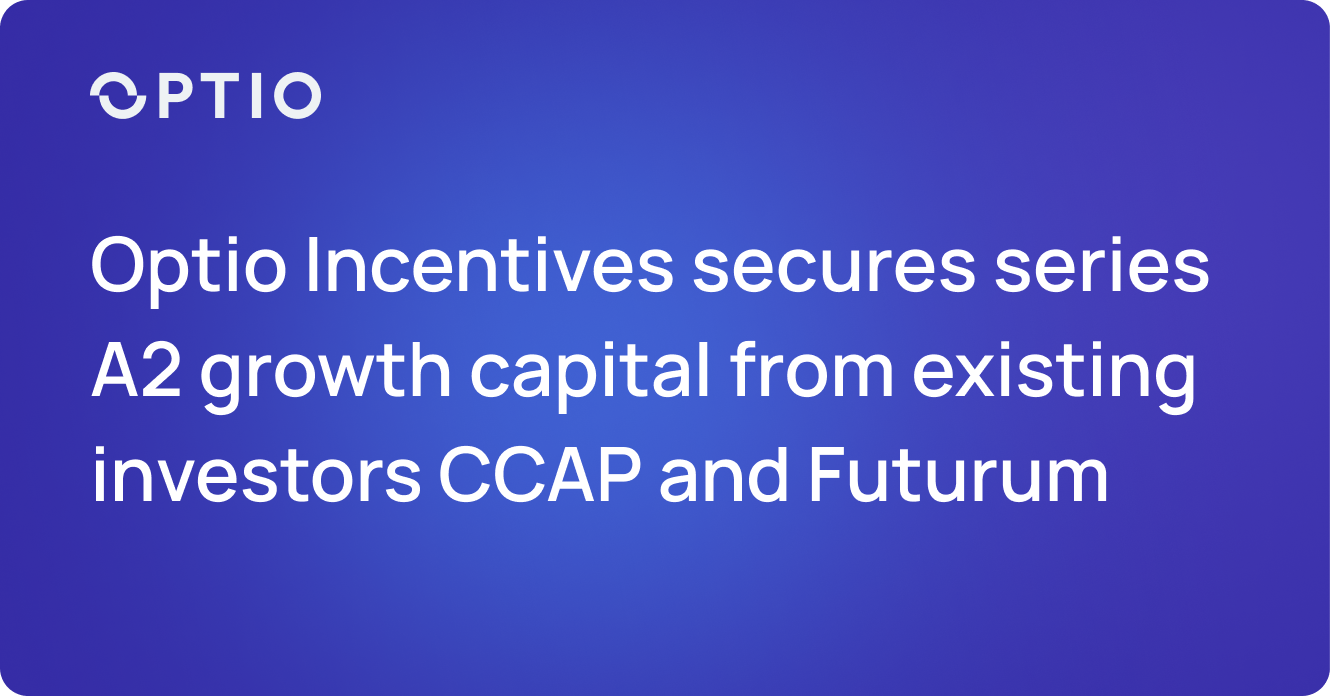This blog post is based on our Stock 'N Roll podcast conversation with Tor Daneshmand, CEO and co-founder of Amby, an embedded recruitment company helping scale-ups and enterprises build scalable hiring systems.
The recruitment landscape has undergone dramatic changes since the boom years of 2021-2022. As companies shift from aggressive hiring to conservative growth strategies, equity compensation has become both more complex and more crucial in attracting top talent. In our latest podcast episode, we sat down with Tor Daneshmand to explore how equity packages are being used as recruitment tools in today's market.
The New Recruitment Reality: From Boom to Balance
The hiring market today looks fundamentally different from the frenzy of 2021-2022. Companies are no longer planning massive hiring roadmaps but instead taking a more conservative, quarter-by-quarter approach focused on runway and profitability.
"We don't see the massive hiring roadmaps anymore," Tor explains. "Companies are more conservative, more focused on their runway basically. You're not planning for a thousand hires this year. You're going quarter by quarter."
This shift has also changed the types of roles companies prioritize. There's been a notable move away from tech and product hiring toward go-to-market roles that can directly drive revenue and growth. Interestingly, Tor notes that requests for UX designers are starting to pick up again—a potential early indicator that the market may be beginning to recover.
The Components of Modern Compensation Packages
When it comes to compensation structure, the three main components remain consistent: base salary, bonus/commission, and equity. However, their relative importance and proportions have shifted significantly since the market correction.
Base Salary: The New Non-Negotiable
One of the most significant changes has been the increased importance of base salary, particularly for in-demand roles like developers. "I find it to be that, especially for developers, they want equity, but base is critical. It's key. It's expected because it's such an in-demand talent pool," Tor notes.
This shift reflects several factors: geopolitical uncertainty, rising interest rates, increased cost of living, and the fact that many option programs have taken significant hits. Candidates are more risk-aware and less willing to gamble on equity upside alone.
Role-Specific Compensation Patterns
Different roles have developed distinct compensation preferences:
- Sales roles: Still heavily weighted toward commission and OTE (On-Target Earnings), with professionals wanting uncapped earning potential and immediate rewards for closing deals
- Developers: Require strong base salaries as a foundation, with equity and bonuses as additional incentives
- Executive management: Preferences vary widely based on life stage and personal risk tolerance
Equity in Recruitment: Prevalence and Challenges
For startups and scale-ups, equity remains a standard component of compensation packages. However, implementation isn't universal, even among VC-backed companies. Tor identifies several reasons why some companies skip equity programs initially:
- Founder conservatism about dilution
- Time and complexity barriers in setting up programs
- Preference to evaluate candidate quality before offering equity
For enterprise clients, equity programs exist but are rarely used as selling points in recruitment. They're often poorly communicated and difficult for candidates to understand.
The Communication Challenge: When and How to Discuss Equity
One of the most complex aspects of using equity in recruitment is timing and communication. While base salary should be discussed upfront to avoid wasting time, equity conversations typically happen later in the process.
"Here in the Nordics, we say that you will be part of an equity program, and we're not going to the details of that because the setup is different. The most important is the compensation, like the base salary. And then for the equity part, that's something for us to discuss later," Tor explains.
This approach differs significantly from more mature markets like the US and UK, where there are established benchmarks and industry standards for equity compensation.
The Sophistication Gap: Market Maturity Matters
There's a notable difference in equity sophistication between markets. Candidates from mature markets (US, UK, Canada) tend to:
- Be more aware of equity programs
- Push harder in negotiations
- Conduct more thorough due diligence
- Ask more sophisticated questions
In contrast, Nordic candidates often have less experience with equity compensation, creating both challenges and opportunities for companies.
The Valuation Communication Dilemma
One of the most delicate aspects of equity-based recruitment is communicating company goals and potential outcomes. Companies must balance being inspirational with being realistic about risks and potential returns.
The challenge is particularly acute when trying to attract talent from established firms like McKinsey, Bain, or BCG. These candidates understand value creation and want to know the potential upside that justifies leaving their secure, high-paying positions.
Tor advocates for transparency: "We want to achieve this, and this is what you'll get. This is the scenarios—bull, bear, normal state basically. We don't know what the future will bring, but we want to achieve this and this is what life could look like."
The Understanding Gap: A Barrier to Effective Equity Compensation
A significant challenge in using equity for recruitment is candidate comprehension. While most candidates understand there's value in equity programs, many don't grasp the full complexity.
"I think they understand maybe 70% of it, and there's ambiguity on the rest, and some don't understand at all," Tor observes. This understanding gap is problematic because if people don't comprehend the value of their equity, it can't effectively drive the behavioral change and engagement companies want.
This highlights an important principle: if candidates significantly undervalue equity due to lack of understanding, companies might be better off increasing base salaries instead of diluting ownership.
Currency and Global Competition
The depreciation of Nordic currencies and increased cost of living have created additional challenges for regional companies trying to attract international talent. This has made equity even more important as a competitive tool, particularly when base salaries can't match international standards.
Looking Forward: Lessons from Implementation
Even companies deeply embedded in the recruitment space face challenges with their own equity programs. Tor shares Amby's experience with a traditional partner model where equity comes through share purchases, which has created accessibility issues as the company's valuation has grown.
"The early stage partners get more of the company because we didn't have the same type of valuation. But now it's getting more expensive, and not everybody's in that position to be able to have cash," he explains.
This has led Amby to restructure their approach, introducing more profit-sharing elements and bonus setups to create better balance between individual contribution and company performance.
Key Takeaways for Founders and HR Leaders
- Base salary is non-negotiable: Especially for in-demand roles, a solid base salary is essential before equity can be effective
- Invest in education: The perceived value of equity depends heavily on understanding. Companies must invest time in helping candidates and employees comprehend their equity packages
- Market maturity matters: Adjust your approach based on the sophistication of your talent market
- Transparency builds trust: Be honest about scenarios, risks, and potential outcomes rather than overselling the upside
- Consider accessibility: Ensure your equity programs are accessible to the talent you want to retain, not just those with existing wealth
- Regular iteration is necessary: Equity programs need to evolve as companies and markets mature
The conversation with Tor highlights that while equity remains a powerful tool for attracting and retaining talent, its effective use requires careful consideration of market conditions, candidate sophistication, and clear communication. As the recruitment landscape continues to evolve, companies that can navigate these complexities will have a significant advantage in building strong teams.
"Please note: This podcast content is for informational purposes only and is not intended as professional advice. Always consult qualified legal, tax, and financial advisors for guidance specific to your situation."
Stay tuned for more episodes of Stock 'N Roll as we continue exploring the world of equity compensation—from theory to practice.




